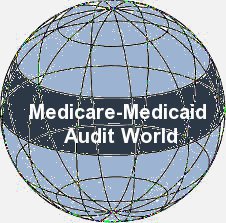 Part 1 of this post provided information on the number of appeals being filed by providers from RAC repayment demands and, for those appeals already decided, the extraordinary success providers have had in getting RAC decisions overturned. In some cases, the Equal Access to Justice Act (EAJA) opens the door to the recovery of the fees and costs incurred by the provider in prosecuting the appeal if the provider prevailed in an “adversary adjudication” before an ALJ, and if the position of CMS was not “substantially justified.”
Part 1 of this post provided information on the number of appeals being filed by providers from RAC repayment demands and, for those appeals already decided, the extraordinary success providers have had in getting RAC decisions overturned. In some cases, the Equal Access to Justice Act (EAJA) opens the door to the recovery of the fees and costs incurred by the provider in prosecuting the appeal if the provider prevailed in an “adversary adjudication” before an ALJ, and if the position of CMS was not “substantially justified.”
What is an “adversary adjudication?” – Handron v. Secretary Department of Health and Human Services
 In 2003, Dr. Handron, a psychologist, received a demand to repay $604,038 from a Medicare contractor because his documentation did not support the services billed. The amount to be repaid was extrapolated from a nurse’s review of 2,500 of Dr. Handron’s claims. Dr. Handron retained counsel and after losing his initial appeal, appealed to an ALJ. The ALJ determined that of the 2,500 claims reviewed by the nurse, Dr. Handron had been overpaid only $5,434.48 and that because the statistical sampling procedure used by the contractor was unreliable, the extrapolation was invalid. Although the ALJ requested that a representative of the contractor or CMS appear as a non-party participant at the hearing, none did so. However, again at the ALJ’s request, CMS did provide the ALJ with documents related to the sampling procedure and extrapolation used by the contractor.
In 2003, Dr. Handron, a psychologist, received a demand to repay $604,038 from a Medicare contractor because his documentation did not support the services billed. The amount to be repaid was extrapolated from a nurse’s review of 2,500 of Dr. Handron’s claims. Dr. Handron retained counsel and after losing his initial appeal, appealed to an ALJ. The ALJ determined that of the 2,500 claims reviewed by the nurse, Dr. Handron had been overpaid only $5,434.48 and that because the statistical sampling procedure used by the contractor was unreliable, the extrapolation was invalid. Although the ALJ requested that a representative of the contractor or CMS appear as a non-party participant at the hearing, none did so. However, again at the ALJ’s request, CMS did provide the ALJ with documents related to the sampling procedure and extrapolation used by the contractor.
After prevailing on the vast majority of the claims in his appeal, Dr. Handron filed an application for fees and expenses under the EAJA. The ALJ, the Medicare Appeals Council and the District Court all denied Dr. Handron’s claim based upon a HHS regulation found at 45 CFR § 13.3 that defines an “adversary adjudication” as one in which CMS is represented by counsel at the ALJ hearing. The Third Circuit disregarded the regulation and held that:
[C]ongress chose language that left open the possibility that the government’s position could be represented in some other manner and by someone other than a lawyer. This indicates Congress’s recognition that the position of the United States can be represented in many ways and its desire to grant judges some discretion in determining whether particular action “represents” the government’s position. It does not suggest that the government’s position can only be represented at a hearing if a government representative physically stands before the decision-maker…
Accordingly, we have little doubt that some forms of written advocacy submitted to an ALJ can constitute a representation of the government’s position, so as to make an agency proceeding an “adversary adjudication” for purposes of the EAJA.
 Although Dr. Handron won the attorney battle, he lost the war when the Court held that something more than the provision by CMS of the claim files and documents explaining the statistical sampling methodology was required to make his ALJ proceeding an “adversary adjudication.” The Court held that for an ALJ proceeding to be an adversary adjudication, the Government must engage in:
Although Dr. Handron won the attorney battle, he lost the war when the Court held that something more than the provision by CMS of the claim files and documents explaining the statistical sampling methodology was required to make his ALJ proceeding an “adversary adjudication.” The Court held that for an ALJ proceeding to be an adversary adjudication, the Government must engage in:
[a] minimum level of purposeful advocacy of a legal position directed at the decision-maker. Like the writings in Willis and Rowell, the writings to which Dr. Handron points do not reflect that kind of purposeful advocacy and therefore do not implicate the EAJA… Here, the government did not take any action to advocate for, or urge, its position before the ALJ. It filed no brief, gave no statement, and expressed no position, in writing or in person.
I believe the result would be different if, as is becoming more common, a representative of the RAC or MAC testifies or CMS offers expert testimony or presents something more than simple factual data about the analysis of the claim.
When is CMS’ position not “substantially justified?”
It is the agency’s burden to establish that its position was substantially justified. However, because the provider was successful does not mean the agency’s position was not substantially justified.
In Pierce v. Underwood, a case decided by the United States Supreme Court in 1988, the Court held that substantially justified means that the agency’s position is justified if it would satisfy a reasonable person or stated in another way, that the agency’s position had a “reasonable basis both in law and fact.” If CMS cannot meet this burden, its position is not substantially justified.
What you need to do if you win your appeal and want to recover your fees and expenses?
If you win your ALJ appeal and believe CMS or its contractor acted in such a way as to make the proceeding an adversary adjudication and that CMS’ position was not substantially justified, the EAJA requires that an application for fees and costs be submitted within 30 days of the final disposition of the claim (not 30 days from when you receive notice of the disposition). Because the courts have held this to be a jurisdictional requirement that cannot be waived, you must submit your application in a timely manner. What needs to be in the application is set forth in § (a)(2) of the EAJA.
Please contact us if we can be of any assistance in assisting you with an EAJA claim or in helping to resolve other issues with any of the legion of CMS auditors.
 Medicare-Medicaid Audit World
Medicare-Medicaid Audit World






